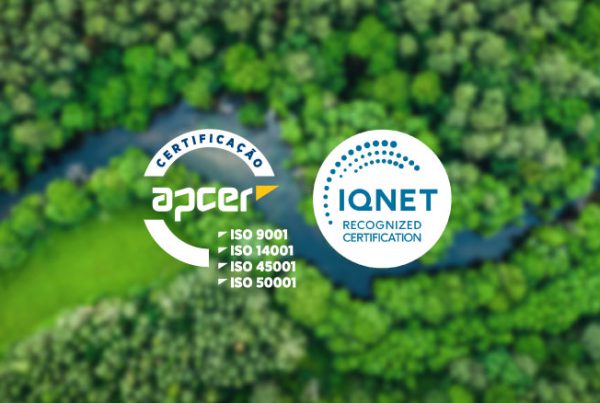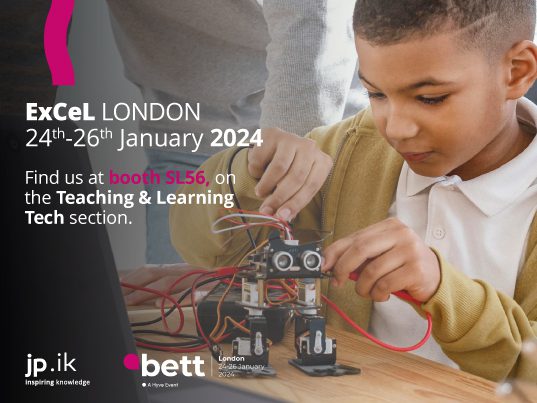After a year and a half of facing a pandemic, it’s undeniable that technological and digital devices offer a long-term strategy for education, with both equal access and innovation in the backdrop.
In the wake of a digital transition that reaches almost all companies and States, it is a pressing issue to have citizens that are qualified to respond and perform accordingly in their personal, student and professional lives. To do so effectively means training people throughout lif e especially at a young age.
In underprivileged countries, the benefits of digital education are more evident than in privileged ones. But to implement this model is also much more difficult. More often than not, companies and institutions have a crucial role in helping States all over the world meet these standards. This is why Intel, jp.ik, Millennium@EDU and ALECSO decided to act.
Since the first half of 2021, Intel, jp.ik, Millennium@EDU and ALECSO have joined forces by giving out more than 4.000 student devices and almost 100 teacher devices to Djibouti. These four institutions are not only equipping students and teachers in the aforementioned country with technology especially designed for education, but they’re also training teachers and technicians to adapt to a more sustainable model of education.
Intel, jp.ik, Millennium@EDU and ALECSO believe that creating a more responsible, inclusive and sustainable world, enabled through technology and collective actions, can change the world.
Jorge Sá Couto, Chairman at jp.ik, states that theres no doubt that digital transition transforms our society and economy, but what truly drives jp.ik is the impact that education especially digital education can have in these young peoples lives. We want every student to have access to and train for whatever they want, regardless of the country theyre from in particular young women who, many times, face added steps to achieve equal treatment and opportunities.
Mário Franco, Founder & Chairperson at Millennium@EDU SUSTAINABLE EDUCATION, states that Millennium@EDU SUSTAINABLE EDUCATION is committed to contribute to the Sustainable Development Goals (SDGs), particularly, in getting results and achievements related to SDG4 Quality Education, in specific targets, namely Target 4.4 Technical and vocational skills – By 2030, substantially increase the number of youth and adults who have relevant skills, including technical and vocational skills, for employment, decent jobs and entrepreneurship and Target 4.a School Environment Build and upgrade education facilities that are child, disability and gender sensitive and provide safe, non-violent, inclusive and effective learning environments for al Electricity Internet Computers, each measured by the respective SDGs Indicators 4.4.1 and 4.a.1. which present Data that makes visible those who are most vulnerable.
Millennium@EDU SUSTAINABLE EDUCATION is extremely honored and humbled to be part of this Project which steers countries towards achieving their targets.
H.E. Prof. Mohamed Ould Amar, the General Director of ALECSO, states that since the outbreak of COVID-19, ALECSO has mobilized all its technical capabilities to contribute to tackling the impact of this pandemic. It has launched several initiatives, including its e-learning initiative in response to school closure and education disruption in the Arab countries. It has worked, jointly with its partners, to provide the latest online platforms and digital environments for Arab education ministries and institutions, to be used for online learning/education purposes. It has also held specialized training courses for Arab teachers on how to operate the educational platforms provided through this initiative, how to use e-learning tools, and how to design digital educational contents and make them available on the web.
He added that ALECSO is pleased to cooperate with its distinguished partners, Millennium@EDU SUSTAINABLE and jp.ik Inspiring Knowledge, for the implementation of an initiative to donate computer devices to Mauritania, the Comoros and Djibouti, with a view to supporting their efforts in tackling the impact of the pandemic through the use of modern e-learning tools and systems.
Also, Prof. Mohamed Jemni, the Director of ICT at ALECSO states that this project creates a distinctive opportunity for many students, especially poor students, to benefit and practice online education in these countries.
Proud of the work that has been developed and implemented in the past year, Intel, jp.ik, Millennium@EDU and ALECSO will continue to commit and work for sustainable development goals and access to digital education.



